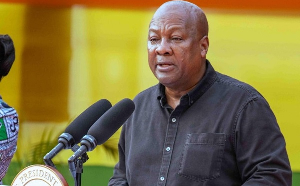A Country Director at the Population Council, Professor Augustine Ankomah, has called on all stakeholders to get on board to implement strategic measures and intensive educational programmes to help curb the rising growth of Ghana’s population.
He attributed the increasing population growth to the rise in cases of teenage pregnancy among the youth.
According to him, population issues are highly sensitive, hence, the outfit would need “support and goodwill from various stakeholders, including families, religious groups, political leaders to help us address population-related issues.”
“…in 1960, our population was about 6 million, today we are about 30 million so just look at it, within the last 60 years our population has increased drastically and that is an issue we should critically look at,” he said.
Prof. Ankomah highlighted that a major reason for the increase in teenage pregnancies is due to the failure of individuals to seek family health planning at health facilities.
“It is a challenge to convince people that family planning is an option. Some people are also not willing to go to the hospital for family planning, other teenagers also feel shy to go and ask for support and finally early child marriages,” he stated.
Meanwhile, “government is working tremendously hard on this; the Ministry of Health, especially the Ghana Health Service, has an Adolescent Reproductive Health Unit within the Family Health Division which have policies and guidelines to address these issues.“
Prof. Ankomah added that girls should be intensively educated to prevent more pregnancies, saying, “education is the best contraceptive.”
Ghana’s population
Ghana’s population at estimated at 31,072,940 people in mid-year of 2020 according to UN data.
The country’s population is equivalent to 0.4% of the total world population.
General News of Tuesday, 13 October 2020
Source: universnewsroom.com













